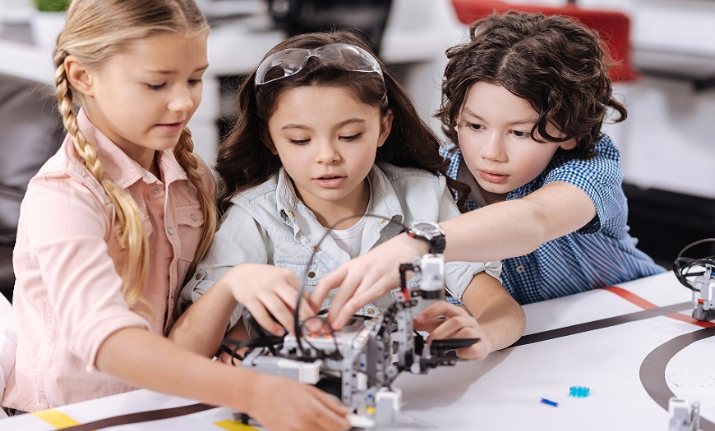A Beginner’s Guide to Robotics and Coding for Kids

In today’s digital age, introducing your child to STEM education at a young age is more crucial than ever. A brilliant way to achieve this is through the fascinating field of robotics. Here’s a primer on why learning coding and robotics is important, and how you can help your child embark on this exciting journey.
Understanding Robotics
A robot is an autonomous machine that performs tasks based on sensory input. It combines mechanical, electronic, and programming elements. This intermingling of fields means that learning about robotics also introduces kids to a broad range of STEM concepts.
The Relevance of Coding
Coding is essentially a set of instructions that a computer, or a robot, can read and execute. It is vital in the digital world we inhabit, helping us solve problems and create digital solutions. When children learn coding, they aren’t just memorizing information; they’re learning how to think critically, solve problems, and self-learn.
Ideal Age for Coding
Children can start learning to code as young as when they begin reading and writing. The exposure to coding at an early age gives them access to a world full of exciting opportunities and prepares them for the digital future.
Coding and Robotics
Coding forms an integral part of robotics, with two types predominantly used – block-based and text-based coding. Block-based coding, seen in platforms like VEXcode VR and Scratch, uses visually distinct blocks to create code, making it easier and more interactive for beginners. Text-based coding, with languages like C/C++, Python, and Java, involves writing lines of code and offers more advanced capabilities.
Skills Gained Through Coding and Robotics
Learning coding and robotics helps kids develop a variety of skills:
Critical thinking and problem-solving: Breaking down complex problems into manageable chunks and finding solutions.
Adaptability: Technology evolves rapidly. Being familiar with coding and robotics equips children to keep up with these changes.
Teamwork: Working together on robot modifications for various challenges fosters collaborative skills.
Communication skills: Sharing ideas and explaining their work improves both their written and verbal communication.
Getting Started with Robotics Programming: A Beginner’s Guide
Using platforms like VEXcode VR, kids can program virtual robots, learning through hands-on, interactive activities. Here’s a simple step-by-step guide:
- Open VEXcode VR in your web browser.
- Start a new project.
- Select a virtual playground for your robot.
- Drag and drop code blocks to program your robot’s actions.
- Run your program and watch your robot move.
- View your robot’s actions from various angles.
- Inspect your robot’s virtual sensors and components.
Taking the Next Step
If your child shows an interest in further exploring robotics and coding, consider enrolling them in online courses. Tokyo Coding Club offers a blend of programming, robotics classes, and fun outdoor activities. Learning while having fun can be the most effective way for children to absorb and apply new concepts. For more information on their programs, follow the link below!
In the end, the purpose of introducing children to coding and robotics is not just about preparing them for future careers. It’s about equipping them with tools for critical thinking, problem-solving, creativity, and innovation – skills that are valuable in every aspect of life.
Try Out Coding and Robotics courses
Check out online robotics and coding courses if your youngster is interested in learning more about how robots operate or how to utilize sensors to navigate a maze. Tokyo Coding Club has programming and robotics classes and outdoor activities. We believe that having fun is the best way to learn!

